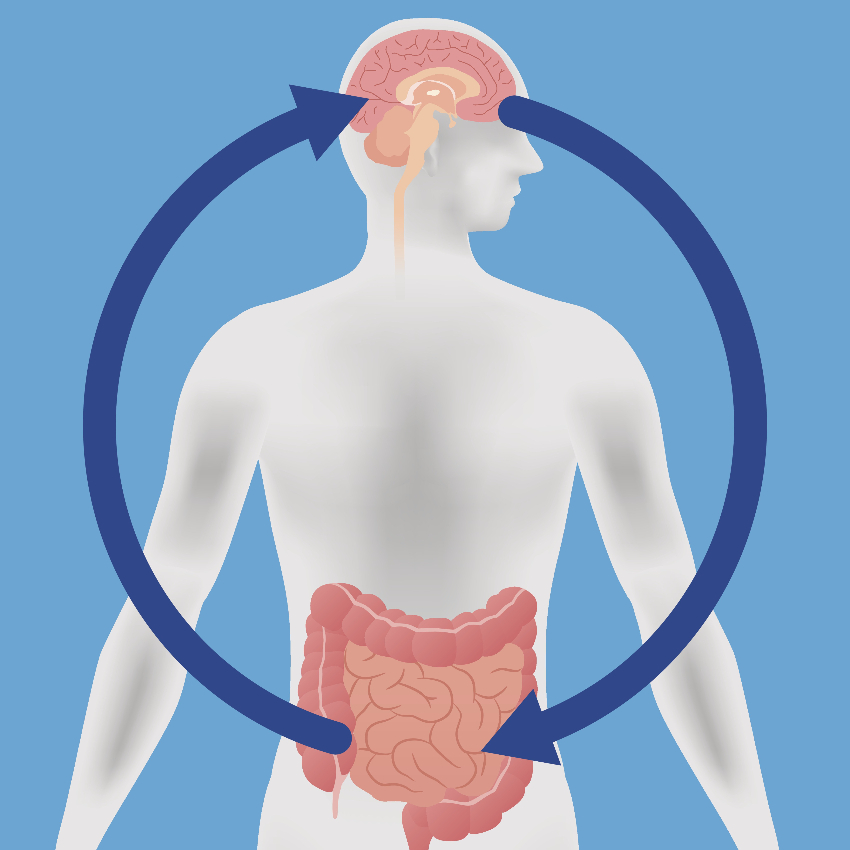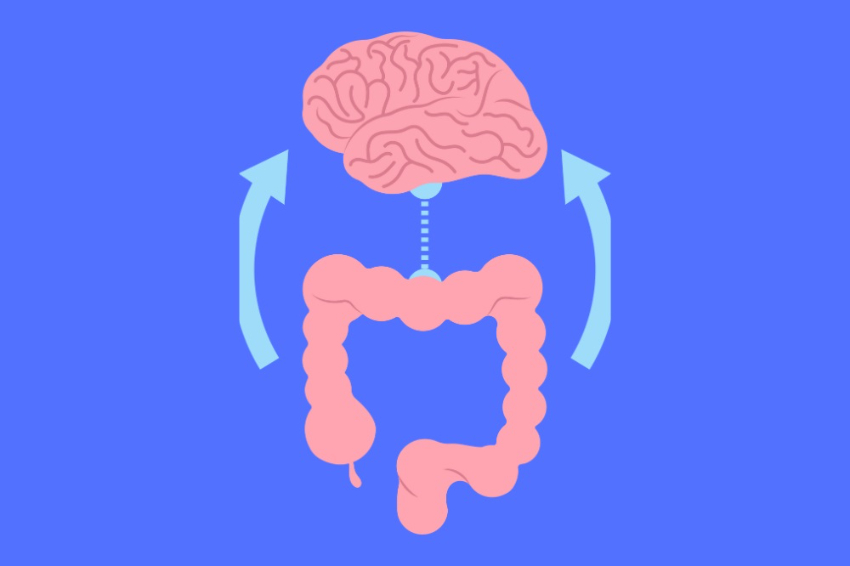Exploring the Link Between Meditation and Digestive Health
While stress, unhealthy diets, and other lifestyle factors can lead to poor digestive health, it is crucially important to our overall well being. The relationship between the mind and the digestive system—often called the gut-brain connection—has become a focus of scientific study. Evidence grows of the benefits of meditation for digestive health, a known centuries-old mind body practice for calming the mind and now is known for its stress relieving, mindfulness support and gut enhancing action.
This article delves into the connection between meditation and digestive health, exploring how mindfulness practices can improve digestion, alleviate symptoms of gastrointestinal disorders, and support a healthier gut-brain axis.
Understanding the Gut-Brain Connection

The behavior of the digestive system and the brain depend upon the activities and function of the nerve, hormone, and biochemical signals — collectively called the gut–brain axis — that connect the two systems. As such, this also helps to explain why emotional states, such as stress and anxiety, often show up as digestive concerns, including things like bloating, nausea, or irritable bowel syndrome (IBS).
Key Players in the Gut-Brain Axis:
- Vagus Nerve: As a communication highway between the brain and gut, it acts.
- Microbiome: Brain and mood are regulated by gut bacteria.
- Hormones: Cortisol, stress hormones, can hinder your digestive processes.
This system can be regulated by meditation which decreases stress, and promotes an even internal environment.
Stress and Digestive Health
Stress triggers the release of cortisol and adrenaline, which can lead to:
- Slowed digestion.
- Imbalance in gut bacteria.
- Inflammation in the gastrointestinal tract became increased.
Digestive conditions such as IBS, acid reflux and ulcerative colitis are exacerbated by chronic stress. Meditation interrupts this harmful cycle, by reducing stress, and supports normal digestive function.
Improving Your Digestive Health Through Meditation
Reduces Stress and Cortisol Levels
A healthy gut is about stress management. Meditation helps lower cortisol levels, which:
- Helps smooth muscle digestive tract function.
- Reduces gut inflammation.
- It helps in growing beneficial gut bacteria.
Improves Mindful Eating
Mindfulness meditation encourages awareness during meals, helping individuals:
- Understand when you are hungry and when you are full.
- Slow down and eat. That’s better for your digestion.
- Make healthier food choices.
Supports the Vagus Nerve
Meditation techniques, such as deep breathing, stimulate the vagus nerve, which:
- It improves communication between the gut and brain.
- Regulates digestion.
- Enhances nutrient absorption.
Triggers Jejunal Bacteria to Alleviate Symptoms of Digestive Disorders
Studies have shown that meditation reduces symptoms of:
- MBSR programs have been effective to reduce pain and bloating.
- Acid Reflux: Reduced stress keeps acid production from getting worse.
Digestive Health meditation practices
Mindfulness Meditation
It is about being present now, bringing down stress and a calm mind. This can be done during meals and by practising mindfully.
How to Practice:
- Sit in a quiet space.
- Take your breath or concentrate on a particular area of your body.
- When your mind wanders gently, bring your attention back.
Deep Breathing Exercises
Relaxes, and stimulates the vagus nerve which supports healthy digestion.
How to Practice:
- Inhale through your nose for the count of four.
- Take four counts and hold your breath.
- Breath out through your mouth for six counts.
Body Scan Meditation
It raises awareness of physical sensations, making you aware what stress-related tension in the digestive system feels like.
How to Practice:
- Lay down in a good position.
- Start to focus on various body parts, from your toes to where you can most easily not see them.
- Go release tension in each area as you go.
Loving-Kindness Meditation
Indirectly one helps digestive health in encouraging positive emotions and reducing stress.
Scientific Evidence Supporting Meditation for Gut Health
- Stress and IBS: In a 2015 study published in Clinical Gastroenterology and Hepatology, mindfulness meditation cuts IBS symptoms in half in participants.
- Gut Microbiome: Meditation could be affecting people’s gut microbiome too, new research suggests.
- Digestive Function: Breathing exercises seem to promote better functioning and less bloating.
In these studies meditation is shown as a complementary approach to conventional digestive health treatment.
Meditation and Your Daily Routine
Start Small: Start daily by spending 5-10 minutes in meditation and slowly build it up.
Combine with Meals: Practice mindful eating to help digestive matters.
Use Technology: There are apps like Calm, (whack, swish) Headspace or Insight Timer which offer guided meditations to help you clear your mind and reduce stress or improve your gut health.
Consistency is Key: For long term benefits, make meditation a non negotiable part of your routine.
Additional Tips for Digestive Wellness
While meditation is powerful, a holistic approach to digestive health includes:
- Balanced Diet: To help your gut microbiome, consume fiber rich foods and probiotics.
- Regular Exercise: This helps digestion and removes stress.
- Hydration: Avoid constipation by drinking plenty of water.
- Adequate Sleep: Restorative sleep is good for mental and physical health.
Conclusion
Meditation offers a natural, cost-effective way to improve digestive health by reducing stress, fostering mindfulness, and enhancing the gut-brain connection. If you’re experiencing chronic digestive issues or just want to ensure your health, meditation could turn out to be a powerful tool to mediate your way to health.
Go small, be consistent, and have fun on the path to gut health.








